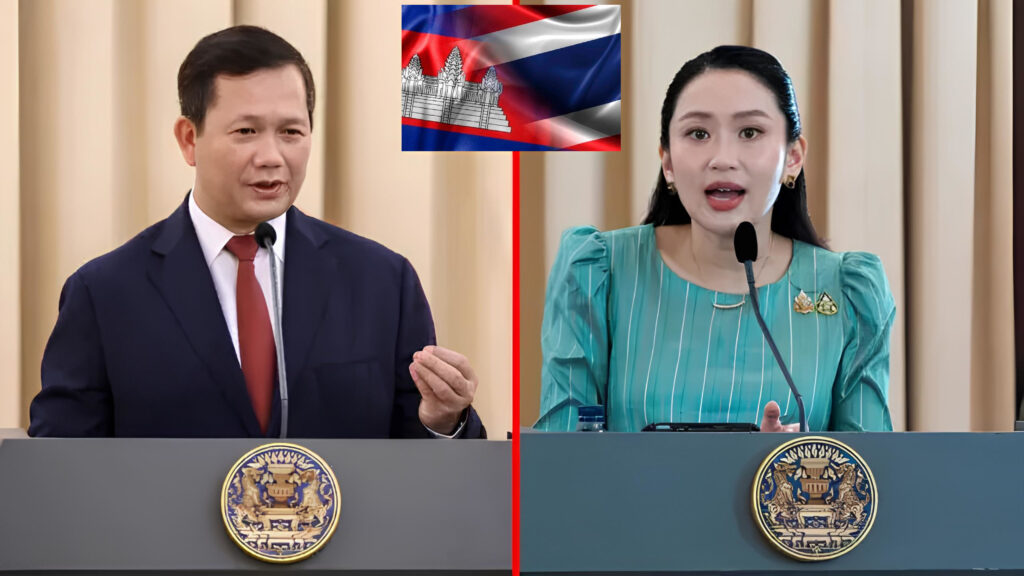The conflict between Cambodia and Thailand. Particularly surrounding the Preah Vihear temple, is not only about territorial claims. It is also driven by domestic political factors in both countries. Here’s a detailed analysis:
1. Territorial Dispute – The Surface Issue
- The heart of the conflict is the ancient Preah Vihear temple, located near the border between the two nations.
- In 1962, the International Court of Justice (ICJ) ruled that the temple belonged to Cambodia.
- However, the surrounding 4.6 km² of land was not clearly ruled upon, leading to ongoing disputes.
- Both countries deployed troops in the area, with multiple clashes occurring from 2008 to 2011.
2. Domestic Political Factors – The Hidden Driver
In Cambodia:
- Prime Minister Hun Sen has ruled for decades. During times of political tension, he used the border conflict to stir up nationalism and divert public attention from issues such as corruption and repression.
- Defending Preah Vihear became a political symbol to reinforce his legitimacy.
In Thailand:
- From 2008–2011, Thailand faced a deep political crisis between the “Red Shirts” (pro-Thaksin) and “Yellow Shirts” (royalist, nationalist).
- The Thai government was accused of using the conflict to distract the public, or to appear strong amid domestic unrest.
- The military, which plays a major role in Thai politics, was also believed to use the conflict to expand its influence.
3. Nationalism and Public Opinion
- In both countries, Preah Vihear is tied to national pride. Media and social networks often amplify hardline views, making compromise difficult.
- Nationalist groups in Thailand especially pressured the government not to “surrender” to Cambodia.
4. International Court and External Responses
- In 2013, the ICJ issued an additional ruling affirming Cambodia’s ownership of the surrounding area.
- This helped ease tensions, but underlying conflict remains if domestic instability reemerges.
Conclusion
The Cambodia–Thailand conflict is not a simple border dispute, but a complex intersection of geopolitics, nationalism, and internal political motivations. It exemplifies how governments may leverage external conflict to consolidate power at home.


ARTICLES IN THE SAME CATEGORY
Spring Pilgrimages and Early Year Temple Visits: Preserving the Cultural Soul of Vietnam Amid Modern Spiritual Distortions
Why Donald Trump is Repealing the “Endangerment Finding”: Where Will Humanity Go if Earth Exceeds Its Limits?
Copper is emerging as a strategic metal that superpowers will compete fiercely for.
The Epstein Files and the Shadow of Power: When Dark Rumors Reflect Back Through Cinema
The More You Boast, the Cheaper Your Value Becomes
2026 Lunar New Year Holiday Schedule – Year of the Fire Horse – VietNam
ARTICLES IN THE SAME GENRE
Latin America’s New Risk Cycle: Why Venezuela is the “Strategic Anchor”
Why Does War Always Erupt in Human Society?
Thailand-Cambodia Border Dispute 2025: A Comprehensive Analysis of Context, Dynamics, and Regional Geopolitical Impact
The Israel-Iran Conflict: A War of Religion and Clashing Beliefs